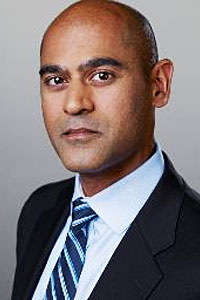In its long-running battle with neighbouring Pakistan, India is in danger once again of shooting itself in the foot.
Over the weekend, the Indian government waded into a cultural war between the South Asian rivals. The chief minister of Maharashtra state, a member of Prime Minister Narendra Modi's ruling Bharatiya Janata Party, brokered a deal to allow a Bollywood film that features a Pakistani actor to premiere as scheduled on Friday.
The intervention followed weeks of swelling tensions, as thuggish hyper-nationalists castigated Bollywood's elite for not displaying sufficient patriotism after Pakistan-backed militants killed 19 Indian soldiers in Kashmir last month. First, India's motion-picture producers' association blocked Pakistani actors and technicians -- as security threats, or at least as not sufficiently critical of their government -- from working on Bollywood sets. Theatre owners in four Indian states including Maharashtra refused to show movies that employed Pakistani actors or crew.
A vintage Pakistani film was pulled from an arts festival. Indian movie stars who spoke out against the boycott were assailed as traitors. Pakistan retaliated by banning Indian movies, music and TV shows.
The deal struck over the weekend will ostensibly allow Ae Dil Hai Mushkil (This Heart Is Complicated) to play in theatres without disruption. But director Karan Johar, one of Bollywood's leading personalities, had to promise in exchange to donate US$750,000 (about 26.2 million baht) to a welfare fund for Indian soldiers. On videotape, he also vowed not to hire any Pakistani actors in the future. What remains unclear is whether other directors will have to make similar payoffs if they want to tap Pakistani talent.
By encouraging this kind of McCarthyism, the Indian government has squandered a chunk of the moral high ground it had earned since the Kashmir attack. Its initial response had been skillful. Rather than retaliating, as armchair generals urged, the government marshalled diplomatic support in regional and world capitals. Even Pakistan's chief sponsor, China, initially declined to come to its defence.
At the end of September, India staged a limited retaliatory strike, winning a public-relations victory at home without provoking an escalation from the Pakistan army. Even after calls first began for Bollywood to cut ties to Pakistan, the government wisely stayed aloof, affirming that it had no plans to revoke visas for Pakistani artists.
India is hardly the first country to succumb to a bout of unthinking nationalism after being attacked, and frustration with Pakistan's support for jihadist groups is understandable. Pakistan's reciprocal ban on Indian content is itself hardly the brightest decision, given that its tiny cinema industry can ill afford to lose the business.
Yet it's much easier to see the costs of Bollywood's new jingoism than the benefits. Slashing cultural links to Pakistan is a high-profile but low-value gesture. The idea that a handful of Pakistani sound engineers or backup singers pose a security threat to India is laughable. It goes without saying that witch hunts do nothing to bolster India's defences against an actual terror attack.
If anything, the opposite is true. The duelling boycotts have closed off one of the few avenues where Indians and Pakistanis could view and interact with one another largely insulated from sectarian politics. They've shut down a fertile exchange that by its very existence, reminds both sides of the vast swath of cultural ground they share.
Alienating the Pakistani artistic community -- one of the few influential voices for pluralism within Pakistani society -- seems particularly counterproductive. India's enemy isn't "radical Islam" or Pakistan itself, which some Hindu nationalists have seen as illegitimate ever since the brutal 1947 partition that split the two nations. It's the strategic mindset that holds that using non-state terror groups such as Lashkar-e-Taiba and Jaish-e-Mohammed to bleed India in Kashmir is somehow in Pakistan's interests.
Outside pressure might begin to change this thinking, especially if imposed by China. India's attempts to isolate Pakistan globally may be having some effect. But ultimately, any lasting change will have to come from within -- and will have to be driven by Pakistanis fed up with the course their army has chosen for them. A campaign targeting the few Pakistanis working in Bollywood, and those Indians who would defend them, instead reinforces the 70-year-old narrative that India is out to demonise and destabilise its smaller neighbour.
It also undercuts one of India's greatest strengths in the contest with its neighbour: its open and vibrant society. Bollywood's always sold more than songs. It's selling a vision of a fertile, fluid, self-confident culture that embraces rather than shrinks from modernity. Anything that undermines that vision only makes India look more like Pakistan.
Nisid Hajari writes editorials on Asia for Bloomberg View.
